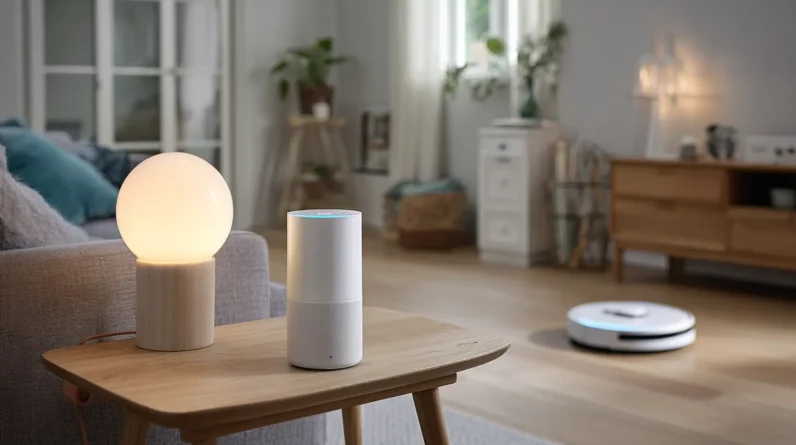In recent years, the intersection of technology and women’s health has become increasingly apparent. From the development of period-tracking apps to advancements in telemedicine, digital solutions are revolutionizing the way women approach their reproductive health.
This article explores the evolution of period-tracking apps, highlighting how they have empowered women to better understand and manage their menstrual cycles. Additionally, it examines the use of technology in telemedicine to provide convenient access to healthcare services for women.
By harnessing these digital tools, women are gaining greater autonomy and control over their own health and well-being.
Key Takeaways
– Evolution of period-tracking apps and digital contraceptives has led to advancements in features and user experience, accurate prediction of menstruation and ovulation dates, and comprehensive health insights beyond tracking menstrual cycles.
– Advancements in telemedicine for women’s health have resulted in accessible and convenient options for healthcare services, virtual prenatal care overcoming geographical barriers, and improved access to healthcare services for pregnant individuals.
– Empowering women through digital health solutions during menopause includes menopause-specific mobile apps for symptom tracking and personalized advice, online support groups for emotional support, telemedicine services for convenient access to expert advice, and wearable devices for monitoring physical health during menopause.
– Comprehensive health insights and education are provided through accurate prediction of menstruation and ovulation dates, comprehensive health insights beyond tracking menstrual cycles, education and empowerment through educational resources, and personalized support based on user input and wearable device data.
The Evolution of Period-Tracking Apps
The evolution of period-tracking apps has seen significant advancements in terms of features and user experience. These apps have become popular tools for women to track their menstrual cycles, gain insights into their reproductive health, and monitor fertility.
One key feature that has improved over time is the ability to accurately predict menstruation and ovulation dates. Advanced algorithms analyze data such as cycle length, symptoms, and basal body temperature to provide accurate predictions. This allows users to plan ahead and be prepared for their periods or increase their chances of conception during peak fertility windows.
Additionally, period-tracking apps now offer a wide range of features beyond just tracking menstrual cycles. Many apps provide comprehensive health insights, including symptom tracking, mood analysis, and nutritional recommendations tailored to each phase of the menstrual cycle. Some even integrate with wearable devices to gather additional data on sleep patterns, exercise levels, and stress levels.
Furthermore, these apps have improved user experience by offering customizable interfaces and personalized notifications. Users can choose from various themes or layouts based on personal preferences. They can also receive reminders about upcoming periods or fertile days through push notifications.
Harnessing Technology for Reproductive Health
Utilizing digital solutions can empower individuals to proactively manage and improve their reproductive well-being. Digital contraceptives and fertility tracking are two examples of how technology is being harnessed for reproductive health.
Increased accessibility: Digital contraceptives, such as mobile apps that provide contraception information and reminders, make it easier for individuals to access reliable reproductive health information. This can be particularly beneficial for those who may face barriers in accessing traditional healthcare services.
Enhanced accuracy: Fertility tracking apps use algorithms and data analysis to predict fertile windows with greater precision, helping individuals who are trying to conceive or avoid pregnancy make informed decisions about their reproductive choices.
Education and empowerment: These digital tools also provide educational resources on topics such as menstrual health, contraceptive options, and fertility awareness. This knowledge empowers individuals to understand their bodies better, leading to more informed decisions about their reproductive health.
Personalized support: Some digital platforms offer personalized feedback based on user input or data collected through wearable devices. This tailored guidance provides users with individualized recommendations for optimizing their reproductive well-being.
As the field of digital health continues to advance rapidly, it holds immense potential in empowering individuals by providing them with the tools they need to actively manage and improve their reproductive health. With increased accessibility, enhanced accuracy, education and empowerment, as well as personalized support available at their fingertips, individuals have the opportunity to take control of their own reproductive well-being like never before.
Advancements in Telemedicine for Women’s Health
Advancements in remote medical consultations have provided accessible and convenient options for individuals seeking healthcare services related to women’s reproductive well-being. One area where these advancements have been particularly beneficial is in the provision of virtual prenatal care. Virtual prenatal care refers to the use of telemedicine technologies to deliver prenatal healthcare services remotely. This approach has gained popularity due to its ability to overcome geographical barriers, reduce travel time and costs, and provide increased convenience for pregnant individuals.
Remote consultations allow expectant mothers to connect with healthcare providers through videoconferencing platforms, enabling them to receive regular check-ups, discuss any concerns or questions they may have, and receive guidance on managing their pregnancy from the comfort of their own homes. These consultations can cover a wide range of topics such as monitoring fetal development, discussing nutrition and exercise plans, addressing emotional well-being, and preparing for labor and delivery.
Virtual prenatal care has been shown to be effective in improving access to healthcare services for pregnant individuals who may face challenges accessing traditional in-person care due to factors such as distance or limited transportation options. Studies have indicated that virtual prenatal care can lead to positive outcomes including improved maternal satisfaction, reduced rates of preterm birth, decreased emergency room visits during pregnancy, and increased compliance with recommended prenatal appointments.
Empowering Women Through Digital Health Solutions
Digital health solutions have the potential to empower individuals by providing convenient access to information and resources related to their well-being. This is particularly relevant for women’s health, as these technologies can address specific needs and concerns.
In terms of menopause management, digital health solutions offer a range of options for women experiencing this transitional phase in life. These solutions may include mobile apps that track symptoms, provide personalized advice, and connect users with healthcare professionals specializing in menopause. Additionally, digital platforms can support mental well-being by offering virtual therapy sessions or mindfulness exercises tailored to women’s unique experiences.
Mobile apps: Menopause-specific apps allow users to track symptoms, receive reminders for medication or self-care practices, and access educational resources.
Virtual support groups: Online communities create safe spaces where women can share their experiences and find emotional support from others going through similar challenges.
Telemedicine services: Remote consultations with healthcare providers enable convenient access to expert advice without needing an in-person appointment.
Wearable devices: These devices can monitor various aspects of physical health such as heart rate, sleep patterns, and stress levels, helping women better understand their bodies during menopause.
Frequently Asked Questions (FAQs)
Are There Any Privacy Concerns Associated With Period-Tracking Apps?
Privacy concerns are associated with period-tracking apps due to potential data security risks. Users may be apprehensive about their personal health information being accessed or shared without consent, highlighting the need for strict privacy policies and secure data storage measures.
How Accurate Are Period-Tracking Apps in Predicting Ovulation and Fertility?
Studies have shown that period-tracking apps can accurately predict ovulation and fertility with a high level of accuracy. The effectiveness of these predictions relies on the algorithms used by the apps to analyze menstrual cycle data.
Can Telemedicine Platforms Provide Comprehensive Care for Women’s Health, Including Gynecological Examinations?
Telemedicine platforms have the potential to provide comprehensive care for women’s health, including gynecological examinations. This advancement in telemedicine accessibility can contribute to improved access and convenience in receiving gynecological healthcare services.
Are There Any Potential Drawbacks or Limitations to Using Telemedicine for Women’s Health?
Potential drawbacks and limitations of telemedicine for women’s health include limited physical examination capabilities, lack of in-person interaction, potential privacy concerns, and unequal access to technology among certain populations.
How Do Digital Health Solutions Empower Women to Take Control of Their Own Healthcare?
Digital health solutions have the potential to empower women by providing them with greater control over their healthcare. These technologies, such as period-tracking apps and telemedicine, enable women to access information and services that enhance their ability to make informed decisions about their health.
Conclusion
In conclusion, the convergence of technology and women’s health has paved the way for groundbreaking advancements in the field.
Symbolically representing progress and empowerment, period-tracking apps have evolved to provide accurate insights into reproductive health.
Additionally, telemedicine has revolutionized access to healthcare by offering remote consultations and personalized treatment options.
These digital health solutions symbolize a future where women can take control of their well-being and make informed decisions about their bodies.
As research continues to drive innovation, the intersection of technology and women’s health holds immense potential for improving overall quality of care.







